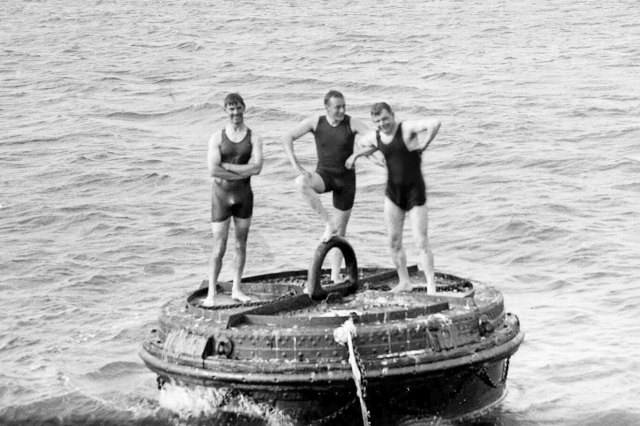 |
Ancient Olympic athletes competed naked. |
Arts & Culture |
 |
| |
| While competing naked became a Greek tradition, it wasn't always that way; some ancient vases from the Minoan period (which ended around 1200 BCE) depict Athenian athletes competing in loincloths. According to accounts by various scholars, the first naked competitor appeared in the 15th Olympiad in 720 BCE. Orsippus of Megara was said to have lost his loincloth during a race, and then ran on to victory. An epitaph of Orsippus, attributed to the poet Simonides of Ceos, reads, "First of the Greeks in Olympia was he crowned while naked; Before him, all contestants were girdled in the stadium." In the modern Olympics, things have changed a little bit, and now competitors wear clothing — though on rare occasions, some modern runners will still go without shoes. | |
 |  |
 | |||
| |||
Uncover the Stories Behind the Eureka Moments | |||
| Thank you for supporting our sponsors! They help us keep History Facts free. |
 | ||||||||||||||
By the Numbers | ||||||||||||||
| ||||||||||||||
| ||||||||||||||
 | ||||||||||||||
| ||||||||||||||
The prize for winning the first documented Olympics was an apple. | ||||||||||||||
| While the modern Olympic Games play host to an excess of 30 sports and well over 300 events, the very first competition in 776 BCE had only one event: a 630-foot race called the "stade," won by a cook named Coroebus of Elis. (The name "stadium" derives from the stade, which was also a standard unit of measurement in ancient Greece.) Instead of a gold medal, Coroebus was awarded an apple. The apple was a sacred symbol in several Greek legends, including the legend of Atalanta and Melanion, in which Atalanta promises her hand in marriage to whomever is able to beat her in a race. Her competitor, Melanion, receives apples from the goddess Aphrodite, and throws them at Atalanta to slow her down. Beginning in the seventh Olympiad, victors were given olive wreaths instead, in a tradition that continued until the event's discontinuation in 393 CE. Gold medals as we know them did not become the standard first-place prize until the 1904 Olympics in St. Louis. | ||||||||||||||
 | |||
Recommended Reading | |||
 | |||
| | |||
 | |||
| | |||
| + Load more | |||
| |||||||||
| Contact us | |||||||||
| Privacy Policy | |||||||||
| Terms of Use | |||||||||
| Do Not Sell My Info | |||||||||
| 700 N Colorado Blvd, #513, Denver, CO 80206 | |||||||||






No comments:
Post a Comment